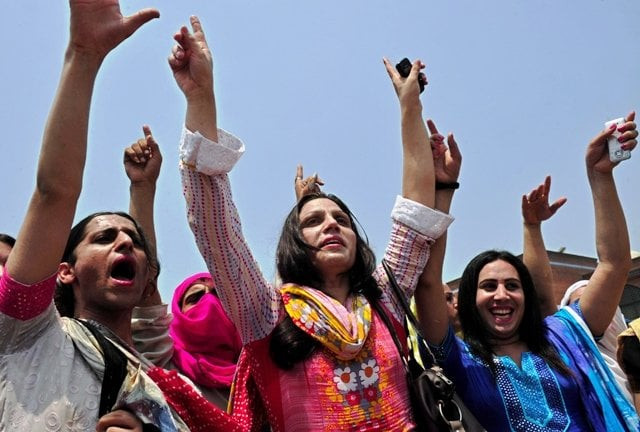Ministry adopts legislation for transgender persons
Law bans discrimination against transgender citizens by service providers

The Ministry of Human Rights (MoHR) has fully adopted and implemented “The Transgender Act 2018” to ensure the protection of transgender persons.
The Transgender Act 2018 explicitly bans any discrimination against transgender citizens by employers, organizations, educational institutions, healthcare providers, transportation service providers and any private business or service providers.
It also calls for the establishment of government-run protection centres for transgender citizens who feel at risk of harm. It further guarantees transgender citizens their right to inheritance, often disputed under some interpretations of Islamic law, to run for public office, to assembly, to have access to public places and several other specific rights.
Read Transgender community wades through troubled waters
Transgender persons in Pakistan constitute one of the country’s most vulnerable and marginalized communities due to a multitude of inter-related socio-cultural, political, economic and legal hurdles.
The legislation encapsulates the right to identity, inheritance, health, education, employment and access to public places.
The Federal Ministry of Human Rights (MoHR), which was a participant in the consultative process to bring about the aforementioned act, had been delegated the responsibility for its effective implementation by the Parliament.
To achieve this goal, MoHR has not only conducted consultations and meetings with transgender rights activists and civil society organizations but has also established the National Implementation Committee on transgender persons which consist of a transgender focal person from each province.
Published in The Express Tribune, September 20th, 2021.



















COMMENTS
Comments are moderated and generally will be posted if they are on-topic and not abusive.
For more information, please see our Comments FAQ